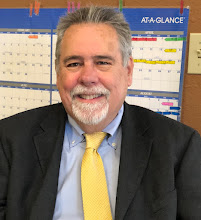Part of the fun of choosing to follow a team as closely as I am the Mariners this season is the opportunity to learn its true identity. This is particularly relevant this season when so many the players are new. This is not last year's team and only traces of the Cano-Cruz-Zunino-Paxton-Diaz identity are to be found. Even injury has, temporarily, removed Seager from the mix and created a different player in Healy.
It's not just that, to make sense this team, you need to understand the qualities of any one player. Those traits are given and relatively set except in the youngest ones. By now Encarnacion is who he is and a quick check of his stats at baseballreference.com will show what he's doing today for the M's is what he has done for Cincinnati, Toronto and Cleveland over the last 14 seasons.
The truth about team identity is that the impact of any one player is only part of the picture, there is just as much impact emergent from the combination of players and what comes out of that unique mix of their personal identities. Organizations like teams are made up of people, cultures and structures and, although we, as humans, are drawn to the "people" stories, the other two components are equally important in explaining team performance. The so-called "team chemistry" is a real thing and has an impact independent of any one player, although it is unquestionably composed of and dependent upon the contributions of all the players.
Sorry to sound confusing about what is a simple point: teams are systems, players contribute to a team's identity, but that identity in return affects how the players perform, which, in an endless loop affects the culture of the team... and so on and on. I'm contradicting what I said earlier: year to year, EE looks like pretty much the same player, but I'm arguing that in any given season, game or at-bat, if you looked carefully you would see a slightly different player shaped by the identity, the culture of that team.
That's one reason following Ryon Healy closely this season is so interesting. He's a different player. Some of that is due to the natural maturation that occurs as coaching and playing finetune his raw talents into the performance of a major league baseball player. But some of those changes are attributable to his stepping up to play thirdbase during the period of Seager's injury. And as he matures, his relationships with each of his teammates is slightly but inevitably altered.
It's instructive to read Healy's commentary on the peculiar double play Friday night when the Angel's Justin Bour did not run out a pop-up. Healy only let the ball drop because Dee Gordon saw Bour walking away from home plate. Healy's training and instincts told him to catch the ball. He couldn't understand why Gordon was yelling at him to drop it or what, once he did let it fall, he was supposed to do next. He just trusted Gordon.
And, in the end, that's what team chemistry is all about... trust. It's not liking each other, chemistry is not about affinity... that's a mistake many make. Trust is about doing what needs to be done to help everyone win. Winning and working together to support each other, independent of whether people "like" each other is what team chemistry is all about.
So, with great interest I'm watching this new team's identity evolve. I've seen some things in this series with California that strike me as very positive, particularly coming on the heels of a somewhat demoralizing six game losing stresk.
More on that later... enjoy the Easter and Passover holiday!


No comments:
Post a Comment